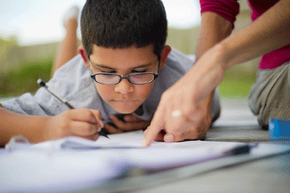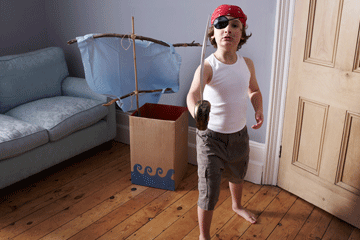With each new grade level comes new responsibilities. In kindergarten, students rely a little bit less on mommy, daddy and teacher and more on themselves; in first and second, there are more opportunities for independent and peer-group work; and in third grade, there's homework.
Your child may have had homework as early as first grade, but that was likely a kind of "training homework" -- quick, fun activities intended more to introduce the idea of self-guided learning than to test or reinforce class-taught academic skills. In third grade, while that lesson in independent learning still very much applies, homework starts to be work.
Advertisement
Math, reading, writing, social studies and science will all be coming home to be completed at the kitchen table, or thereabouts, and you'll be right there. After all, your child is 8 years old. He or she will almost certainly need some help. But it can be difficult to know how much of your help is productive and how much is actually detracting from the overarching lesson in self-guided learning, not to mention the math and language practice intended to build a deeper understanding of important material.
So, how much help is too much? And are there specific areas of learning that call for your assistance more than others?
As homework starts to pick up, lots of parents struggle with the line between helping and doing. It can get a little fuzzy at times, no doubt; but for the most part, establishing appropriate homework boundaries is pretty straightforward. It's about knowing where your assistance serves to further the learning process and where, instead, it short-circuits it.
Advertisement


